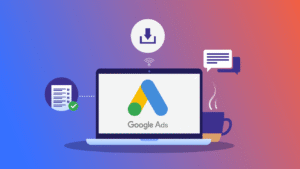SEO stands for Search Engine Optimization. It’s the process of improving the quality and quantity of website traffic to a website or a web page from search engines. The goal of SEO is to make your website more visible when people search for products, services, or information related to your business on search engines like Google, Bing, or Yahoo.
Here’s a breakdown of what that means and how it works:
How SEO Works:
Search engines use complex algorithms to “crawl,” “index,” and “rank” web pages:
- Crawling: Search engines use automated programs called “crawlers” or “spiders” to discover new and updated web pages. They follow links from one page to another to explore the vastness of the internet.
- Indexing: Once a page is crawled, the search engine analyzes its content (text, images, videos, etc.) and stores it in a massive database called an index. This index is like a library where all the information is organized and categorized.
- Ranking: When a user types a query into a search engine, the search engine’s algorithms quickly sift through its index to find the most relevant and authoritative pages for that query. Many factors influence ranking, including:
- Relevance: How well the content on a page matches the user’s search query.
- Authority: The trustworthiness and credibility of the website, often determined by the number and quality of backlinks (links from other reputable websites).
- User Experience (UX): How easy and enjoyable it is for users to navigate and interact with the website (e.g., page load speed, mobile-friendliness, clear navigation).
- Keywords: The use of relevant keywords and phrases throughout the content.
- Content Quality: Whether the content is valuable, comprehensive, and well-written.
- Technical Factors: Website structure, security (HTTPS), and other technical elements that make it easy for search engines to crawl and index.
Key Aspects of SEO:
SEO typically involves several categories of optimization:
- On-Page SEO: This refers to optimizations you make directly on your website pages. It includes:
- Keyword Research: Identifying the words and phrases your target audience uses to search.
- Content Optimization: Creating high-quality, relevant, and engaging content that incorporates target keywords naturally.
- Title Tags and Meta Descriptions: Crafting compelling titles and brief summaries that appear in search results.
- Header Tags (H1, H2, etc.): Structuring your content with clear headings.
- Image Optimization: Using descriptive alt text and optimizing image file sizes.
- URL Structure: Creating clear, concise, and keyword-rich URLs.
- Internal Linking: Linking related pages within your own website.
- Off-Page SEO: This refers to actions taken outside of your website to improve its search ranking. The most significant aspect is:
- Backlink Building: Earning links from other high-quality and relevant websites. These backlinks act as “votes of confidence” for your website’s authority.
- Technical SEO: This focuses on optimizing the technical aspects of your website to help search engine crawlers efficiently access, crawl, and index your pages. This includes:
- Site Speed: Ensuring your pages load quickly.
- Mobile-Friendliness: Making sure your website is responsive and functions well on all devices.
- XML Sitemaps: Providing search engines with a map of your website’s pages.
- Robots.txt: Directing crawlers on which parts of your site to crawl or ignore.
- Structured Data (Schema Markup): Adding code to help search engines understand the context of your content.
Why is SEO Important?
- Increased Visibility and Traffic: Ranking higher in search results means more people will see your website, leading to increased organic (unpaid) traffic.
- Credibility and Trust: Websites that appear at the top of search results are often perceived as more trustworthy and authoritative by users.
- Cost-Effectiveness: Compared to paid advertising, SEO can provide a more sustainable and cost-effective way to generate traffic over the long term.
- Better User Experience: Many SEO best practices, such as optimizing for site speed and mobile-friendliness, also improve the overall user experience.
- Business Growth: More relevant traffic means more potential customers, leads, and ultimately, sales.
In essence, SEO is an ongoing process of optimizing your website to meet the evolving criteria of search engines, with the ultimate goal of connecting users with the most relevant and valuable information available online.


